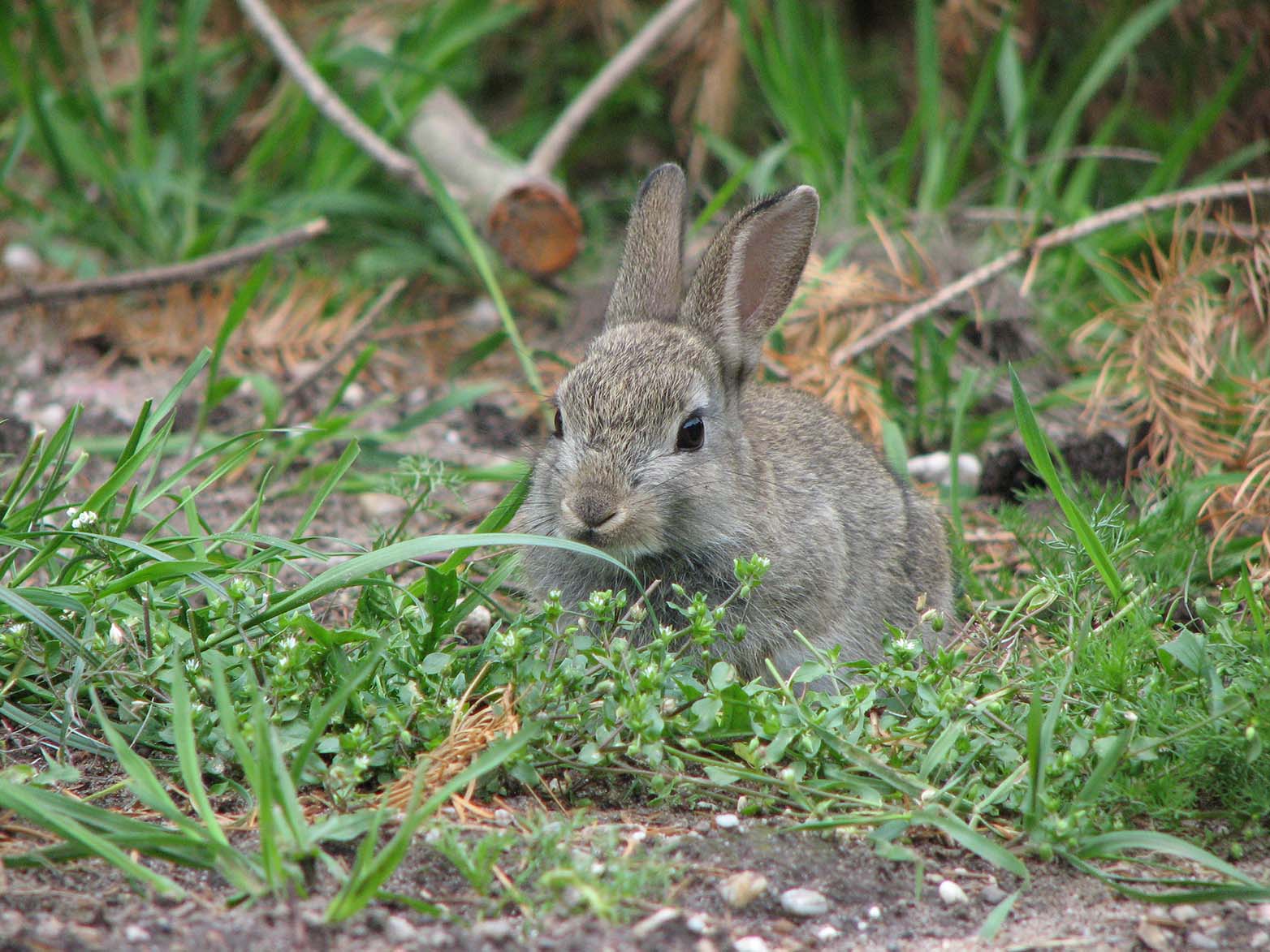


Foto: Margriet Montizaan
The DWHC and the Veterinary Faculty at Utrecht University receive reports of dead rabbits throughout the year, however, since the start of the meteorological summer the number of reports has increased. Post-mortem investigations have identified that Rabbit Hemorrhagic Disease (RHD, also known as Viral hemorrhagic disease [VHD]) continues to cause deaths in both wild and pet rabbits. There is no treatment available and pet rabbit owners are advised to contact their vet to organise vaccination of their animals.
RHD is caused by Rabbit Hemorrhagic Disease Virus (RHDV) of which there are two types: RHDV type-1, known as classic RHDV has been present in the Dutch rabbit population since the 1990s; and a new variant of this virus, RHDV type-2 that was first identified in 2010 in France. It the interceding years it has spread across Europe and was first seen in the Netherlands in 2015.
It is difficult to assess the extent of the rabbit die-off resulting from RHDV. It is not possible to determine the cause of death of a rabbit by external exam alone. The majority of pet rabbit owners do not submit their animals for post-mortem exam. Furthermore, post-mortem is only performed on a small percentage of dead wild rabbits for a number of reasons – they may not always be found, the carcases may be rotten or, investigations may not be possible due to logistical or financial constraints. There is no central hotline for the reporting of dead rabbits and whilst dead wild rabbits can be reported to the DWHC via the online submission form, this is rarely done until very large numbers of dead rabbits are observed.
Findings on post-mortem exam can suggest that an animal died as a result of RHDV infection, however, viral testing is needed to confirm this diagnosis. Such testing has been performed in small numbers of rabbits investigated in Utrecht and has implictaed RHDV-2 in these deaths.
The virus is very infectious; rabbits can become infected by direct (animal to animal) and indirect (animal contact with contaminated urine, faeces, water, feed, clothing or hands) contact. Infectious particles of the RHDV-2 virus have even been recovered from the droppings of birds of prey that have eaten an infected rabbit. The RHD-virus is not infectious for other companion animals such as dogs, cats, guinea pigs or other rodents. Pet rabbits should be vaccinated.
Whilst vaccination of pet rabbits against RHDV-1 and RHDV-2 is not compulsory it is strongly recommended. Rabbit owners should contact their vets for more information. Rabbits being exhibited at shows or that are taken to schools must be vaccinated for RHDV-2.